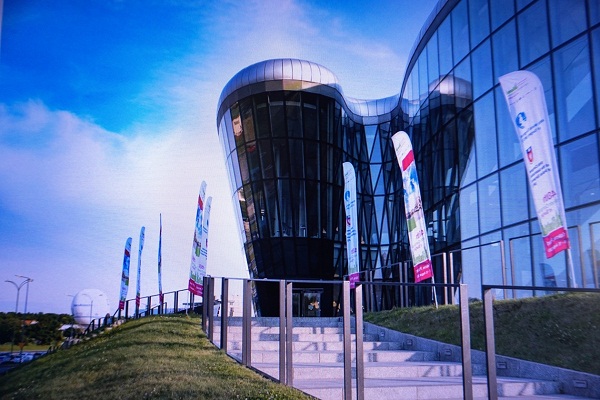A special course was held during the 48th World Congress of Surgeons in Krakow on August 11, 2019: A COURSE TO IMPROVE TEACHING AND CAREER GROWTH OF ACADEMIC SURGEONS (AAS / WJS / ISS / SIC CAREER DEVELOPMENT FOR ACADEMIC SURGEONS COURSE).
 The course was created for academic surgeons, that are, surgeons from universities, academies, postgraduate programs, in which they could improve their knowledge in the field of training students, residents, interns and doctors. The course as the part of the 48-th World Congress of Surgeons was conducted by the team of specialists from the United States.
The course was created for academic surgeons, that are, surgeons from universities, academies, postgraduate programs, in which they could improve their knowledge in the field of training students, residents, interns and doctors. The course as the part of the 48-th World Congress of Surgeons was conducted by the team of specialists from the United States.
This interesting course was completed by the professor of the department of general and emergency surgery of our academy, doctor of medical sciences KOLESNIKOV EB (MD, PhD, DMedSc, FIMSA) to master the materials presented and familiarize employees to apply the knowledge gained in the teaching work of the department.
The course consisted of 4 sessions: 1 - Problems of academic surgery at present; 2 - How to conduct clinical trials; 3 - Presentation of the results of the study; 4 - The life of an academic surgeon.
In the first part of the course, American scientists Bruce Cairns, Herbert Chen and Marco Patti (USA) addressed important issues: a) Why every surgeon can and should be an academic surgeon and why the constant development and updating of knowledge for each surgeon, and not just university teachers, is so important ; b) How to succeed in teaching surgery; c) The importance of learning from a good experienced teacher and how to find him.
In the second session, speakers A. Haider, A Charles, T.S. Wang (USA) focused on the questions: a) How to conduct clinical trials; b) How to create, populate and maintain scientific databases; c) Methodology for creating and writing scientific reviews; d) Statistics: what you need to know when conducting research.
In the third session, American specialists M. Kibbe, J. Dimick, J.A. Sosa (USA) described: a) A strategy for writing a scientific article or abstract for national or international forums; b) How to create and effectively report on a scientific presentation; c) Issues of ethics of scientific research and publication, conflict of interest, falsification, fabrication and plagiarism in scientific work; d) Described the top 10 reasons for the refusal to publish materials.
In the fourth session, speakers A. Hill (New Zealand), M. Patti, S. Roma, J. Dimick (USA) discussed the life of an academic surgeon: a) The importance of a lifetime commitment to surgery; b) The positive impact of studying abroad; c) The day after the end of the surgical training: what next? d) How to effectively allocate your time as an academic surgeon.
The questions of this course were considered very relevant, important and interesting for the academic surgeons of our department and the academy olso, which we will use in everyday teaching work with interns and doctors.



